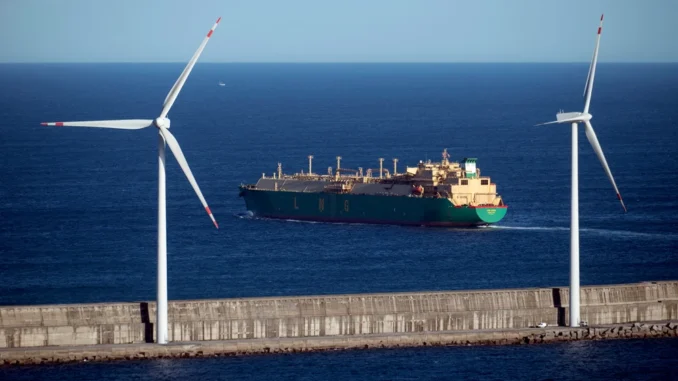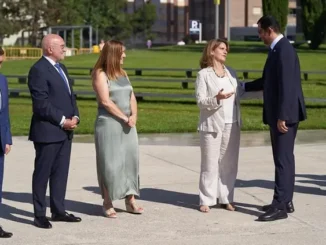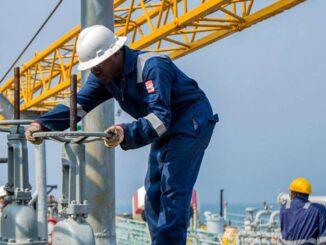
In 2010, Mozambique discovered massive offshore natural gas reserves that promised to transform the country’s economy. Mozambique’s current GDP is around $15 billion; the government expects sales from liquefied natural gas (LNG) to bring in $95 billion in revenue over the next 25 years. Mozambique may be rich in resources, but it is also one of Africa’s poorest countries—and cannot, by itself, provide the investment required to build the infrastructure to extract, distribute, and export the gas.
Despite the clear development case, the question remained about whether the World Bank—one of the largest sources of infrastructure finance in the world—and various Western countries would continue to participate in Mozambican gas projects. Previously, Mozambique received financing from several rich-country governments to extract and export gas, and the U.S. International Development Finance Corporation also provided support for a domestic gas-fired power plant. However, increasingly restrictive policies on public support for fossil fuel development have caused a wide withdrawal from these types of projects.
Years of pleas by African leaders that Western energy policy toward the global south had become unconscionable—that Africa desperately needs a lot more energy to drive economic growth and raise living standards for its fast-growing population—failed to shift the divestment trend. But now, a global energy crisis seems to be changing minds in a way that a chorus of African voices failed to accomplish. As Europe, in particular, scrambles to secure every possible shipload of oil, LNG, and coal to replace both Russian supplies and the nuclear reactors Germany and other countries have chosen to shut down, it became ever clearer that Western nations were holding the global south to a higher standard than most of them met themselves. A policy to deny Africa the same flexibility that rich countries afford themselves simply seems obscene.
It was therefore a welcome change when, in March, a senior World Bank official said that the institution will now consider supporting the development of Mozambique’s natural gas resources—as long as it happens “in the context of a clearly articulated transition plan.” This signal of support, even with caveats, is an important step toward alleviating fears that the World Bank’s restrictions on gas would turn into an effective ban.
In April, a similar change in sentiment took place at a meeting of climate, energy, and environment ministers of the G-7 countries in Sapporo, Japan. Breaking with years of increasing opposition to the development of new sources of fossil fuels, their communique states that “investment in the gas sector can be appropriate to help address potential market shortfalls provoked by the [energy] crisis.” They list a number of conditions but explicitly recognize the baleful effects of energy scarcity and inflation on the developing world. Now, it appears that even Germany, one of the world’s most vocal proponents of renewable energy, wants next week’s G-7 summit in Hiroshima, Japan, to recognize the need for public funding for gas.
These statements are notable because most multilateral development banks, like the World Bank, have significantly restricted financing for most gas infrastructure, except in “exceptional circumstances.” The World Bank’s richest shareholders, including the United States and many European countries, have been working hard to prevent the bank from financing energy projects in poor countries that involve fossil fuels. Guidance from the U.S. government—the most powerful voice at the World Bank—only allows for “narrow support” for mid- and downstream gas projects, and none for upstream projects at all.
At the same time, the Russian invasion of Ukraine has made European nations keen to secure their own gas supply, including by developing Africa’s gas resources for export. European Union member states created a buyers’ club to guarantee a stable supply of LNG and are building new import terminals to receive gas from non-Russian sources. This rush to secure gas supplies for rich Europeans is making it more difficult for these same rich Europeans to ignore energy security needs in the world’s poorest countries.
Mozambique is a case study of why Western policies on energy development need to be more flexible. Almost two-thirds of the population lives on about $2 a day. Only 40 percent of Mozambicans have access to electricity, and the use of biomass for indoor cooking—mainly charcoal and wood collected in the deforested landscape—is pervasive and a major cause of early death, especially for women and girls. The average Mozambican’s electricity consumption (400 kilowatt-hours per year) is almost 1/30th of an American’s and 1/15th of a German’s. Mozambique’s existing power supply, while vastly insufficient, is already much cleaner than most, including the United States’ and Germany’s: The Cahora Bassa hydropower dam, built by the Portuguese colonial government in 1974, generates about 80 percent of the country’s electricity.
Although the new gas production and infrastructure will likely focus initially on supplying Asian and European markets with LNG, there is growing support from the African Union and the African Development Bank to invest in gas for economic development at home as well. Mozambique’s gas resources present an opportunity to remedy the country’s lack of domestic energy infrastructure, including power plants and the electricity grid. Further down the road, gas can also be used for clean cooking and domestic manufacture of fertilizer. Done smartly, gas-fired infrastructure can play a critical role in Mozambique’s energy transition, too.
What is true for Mozambique applies to many other parts of the world. Nearly 775 million people live without access to electricity, mostly in sub-Saharan Africa. About 3 billion people do not have access to clean cooking fuels or technologies, and around 3.5 billion live in economies where unreliable power is a constant constraint to job creation, economic growth, and quality of life. Pervasive energy insecurity entrenches poverty. The reliance on charcoal and animal dung for cooking—instead of gas or electricity—has created a public health crisis that kills millions of people each year. Millions more die from smoke produced by burning coal and oil.
To be sure, Africa’s hunger for energy does not preclude a green-energy buildout—on the contrary. Despite the fact that sub-Saharan Africa contributes less than 4 percent to global carbon emissions, many countries in the region are taking steps to ensure that their economies will be primarily powered by clean energy. Nigeria, for example, has committed to a net-zero plan that includes large buildouts of solar, wind, geothermal, and hydropower.
But solar and wind alone aren’t always a direct replacement for existing energy supplies—and are not currently suited for every purpose. In many poor countries, fossil fuels will still play a major role in the rapid expansion of transportation, clean cooking, and industrial production (including heat for making steel and cement and as a feedstock for fertilizer, plastics, and chemicals). As the deployment of renewables accelerates, gas can also serve a critical role in backing up weather-dependent wind and solar and balancing the grid. In some cases, domestic gas resources may simply be the quickest and cheapest way to address energy poverty and generate economic growth. Because backup power will be required as long as cheap and plentiful battery storage remains out of reach, gas is also one of the best ways to put more solar and wind into the energy system.
Every country treats energy security for its people and economy as paramount—and rightly so. When gas is unavailable or too expensive, countries look to alternatives to help them avoid blackouts. The 2022 energy crisis caused Pakistan to quadruple its plans for coal-fired power plants. Unable to rely on international gas supplies, Bangladesh is also expanding coal use, and Botswana is reviving plans to construct a $2.5 billion coal-to-liquid plant to curb costs for imported fuels. Europe, too, turned to coal to cover shortfalls in 2022, not least to compensate for the political decision to shut down nuclear reactors in the middle of a global energy crisis.
When rich countries or the World Bank curb their investment support for fossil fuels too quickly, they paradoxically risk backsliding on transition efforts. For example, the United States and several European governments are currently negotiating a “just energy transition partnership” (JETP) with Senegal, which discovered significant natural gas deposits in recent years. Senegal is planning to use part of the gas to phase out power generation from heavy fuel oil, one of the most polluting and carbon-intensive fossil fuels. But previous Western pledges to end all public support for unabated gas-fired power plants have held back a final agreement. If the JETP fails due to these restrictive policies for new gas infrastructure, Senegal will almost certainly continue to burn dirty fuel to power its economy.
This conundrum is repeated on a smaller scale across the continent, where the alternative to insufficient power is dirty-burning diesel generators. The bottom line is that a blanket ban on all gas financing does not necessarily reap the climate benefits proponents expect.
The World Bank hasn’t issued a new policy increasing support for gas nor made any firm commitments. All projects must still clear an environmental and social review and be approved by the bank’s board of directors. Still, the acknowledgment of Mozambique’s need to develop its gas reserves is significant, as is the bank’s recognition of “differentiated circumstances” in the global south. If the World Bank does support gas in Mozambique, it would be an encouraging sign that the organization is not allowing restraint to turn into an effective ban.
The World Bank is, at its core, a development organization with an explicit mandate to promote long-term economic growth and poverty reduction around the world. Climate change is a pressing global issue—but only one of many issues the bank must contend with. While a green path to prosperity is desirable and possible in most circumstances over a longer term, the World Bank must view its projects and policies through the lens of its core obligation: to end endemic poverty. If the bank’s latest statement on helping Mozambique doesn’t remain a one-off, this fundamental truth may finally be sinking in.



